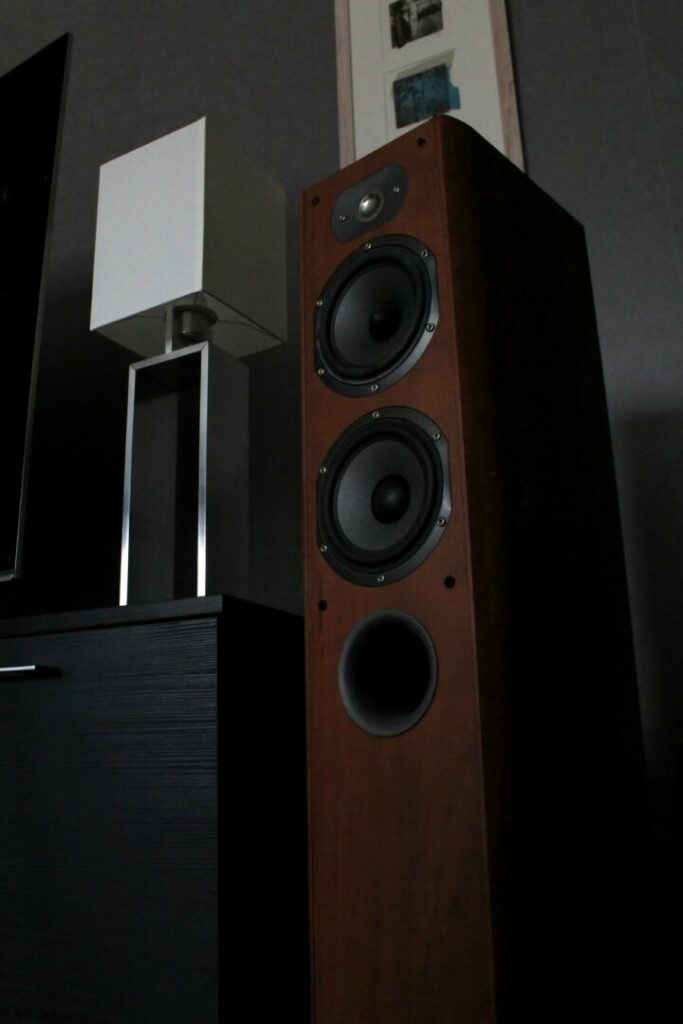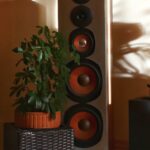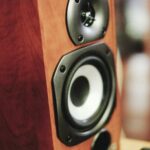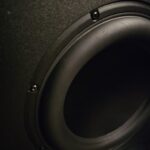Are Tower Speakers Good For Surround Sound? (Things To Know)
Are Tower Speakers Good For Surround Sound? (Things To Know)

One of the most awesome things about home theater in my opinion is just how truly customizable it can be.
Whether you decide to simply use a single soundbar sat atop an entertainment center, a fully fledged Dolby Atmos/DTS:X surround sound system, or anything in between — there’s a plethora of ways to really make things your own.
One of those components that I feel tends to add an extra level of dynamism is tower speakers.
Now here’s the thing, tower speakers are often really good when used as front soundstage speakers and even as a center speaker when used right, but can they actually work in another context?
For example, could tower speakers be used as surround sound speakers too?
It’s an interesting thought and one I thought would be interesting to talk about so let’s get into it!
Are Tower Speakers Good For Surround Sound?
Yes they can work for surround sound, often sounding great – though it may be more power than specifically needed for just the surround sound channels. That said, even that depends on things like the capabilities of that speaker, seating, room size, etc since some may prefer them with their particular listening conditions whereas some might like a bookshelf speaker.
The Capabilities Of The Receiver Are Important To Get The Best Out Of Your Tower Speakers
Now before we get to answering the original question, I feel that it’s important to add some context when it comes to actually using tower speakers in general since there’s a few things to be aware of that tie into that answer.
More specifically, the capabilities of the receiver that you use with your floor standing speakers makes a difference in your experience since it’s that very thing that’s going to be powering your speakers.
If your receiver isn’t strong enough to adequately power them, then you won’t be getting the most performance from them.
If you have to turn your receiver all the way up just to hear your speakers at a sufficient level, then it’s possible that the receiver you’re using for your particular speakers isn’t the best suitable for it meaning they might need something that’s more powerful to play more efficiently.
While there’s many receivers that work well, the Denon AVR-X2700H 7.2 Channel & the Yamaha RX-A4A Aventage 7.2 Channel are powerful receivers that in my opinion, work great with regards to the various home theater setup ideas and configurations that exist.
The Room The Tower Speaker Is Placed In
Another thing that factors into how well your tower speakers actually play is the room they’re placed in.
The more reflective and hard surfaces in a room, the more sound waves may bounce which can affect how everything sounds.
One way to help mitigate this is through acoustic treatment and placing acoustic panels behind your speakers. This can help dampen sound waves which can often benefit the characteristics of the room and how your tower speakers sound.
Also adding plush and soft materials to the room like couches, rugs and those sorts of things can help with how things sound too.
Many modern receivers also often have a room optimization feature that uses a microphone to account for how sound waves interact in a room so using this feature can helpful in that regard.
There may also be a setting in the receiver settings that allows you to set your speakers to large or small which basically allows you to decide what frequencies you want your speakers to handle.
There’s probably varying opinions on this since things can often be subjective, but I typically like to set my speakers to small (including tower speakers) and setting my subwoofers to 80 hertz in the settings — since I find it leaves more power to those higher frequencies specifically while letting the subs only handle the lower frequencies.
I just find it often gives a cleaner sound at higher volumes, so you can try that setting to see how things sound for you.
Though if it’s a stereo setup without a subwoofer then large is often better in that case.
Do Tower Speakers Work In Regards To Surround Sound?
Now that we know all of this, going back to our original question, do tower speakers actually work with regards to surround sound?
I would say yes they definitely work as surround sound speakers, often great in fact actually.
As long as they’ve been optimally placed & setup, and the room they’re in has the space to house them, I’ve often found that using them in this way does allow for a great home theater experience.
Of course that does also depend on things like the capabilities of the speaker itself, seating, and reflective surfaces in a room so that’s something to keep in mind.
The thing is though, it may potentially be more power than specifically needed for just the surround sound channels if you’re just wanting something that would sound good overall (which they often do)
If you already have extra tower speakers and you’re just wondering if you can use them for surround sound then yeah for sure — I’d just recommend setting them to small in the receiver settings so that power is only tasked with the higher frequency sounds.
If you’re asking if you’d specifically need tower speakers for surround sound though, I don’t necessarily think so since from my experience, bookshelf speakers also work amazingly for surrounds when setup right too.
But if you specifically wanted to use tower speakers it’s definitely possible as long as there’s adequate space.
Why Someone Might Choose To Use Tower Speakers For Surrounds
Now one reason someone might opt for using floor standing speakers is to sonically match the ones they already have (known as timbre matching)
Timbre matching a center channel with the front left & right soundstage speakers is important for a cohesive sound, but in my opinion, I wouldn’t say that’s it’s as important for the surround speakers to match too.
However some may feel that it is important to match these as well, and may opt to have uniform speakers all around.
Whether this makes a difference in that aspect I feel is subjective since there’s many variables that could factor into it.
Another reason might decide on using these for surrounds is the potential overhead of additional power that these larger speakers might have.
Since a lot of tower speakers often have bigger drivers and watts, some feel that this additional power, while not always necessary, may allow them to play the notes that they do handle more efficiently.
But over the years I’ve also heard the flipside of that thought where one might prefer a bookshelf speaker because they personally feel it’s more accurate and think a floorstander might have a warmer sound.
I can’t really say one way or another since I think it wildy depends on things such as the volume of content being played, the content itself, capabilities of the equipment and whether they’re actually calibrated, etc. but it’s still interesting nonetheless.
Final Thoughts
In short tower speakers can certainly work for surround sound purposes, though bookshelf speakers can also often work in those instances too.
Since there’s a lot of customizability when it comes to actually creating your home theater, this allows for one to create a truly awesome home theater experience.
But that’s it for now. Until next time, make it easy, keep it simple!
About Me

Jay
Hey everyone it’s nice to meet you. I'm Jay, writer & founder of the site Easy Home Theater. I've been with this hobby of home entertainment for many years now. I decided to create this site to be a helpful resource, and share everything that I've learned from personal experience with you. I also happen to be a huge gamer, lover of all things tech related, and a major fitness buff (love weightlifting)
Contact: Contact Jay
Facebook: https://www.facebook.com/Easyhometheater/
X: https://x.com/easyhometheater
Pinterest: https://www.pinterest.com/easyhometheater/pins/
Instagram: https://www.instagram.com/easyhometheater/
Followit: https://follow.it/easy-home-theater
Bluesky: https://bsky.app/profile/easyhometheater.bsky.social







Leave a Reply